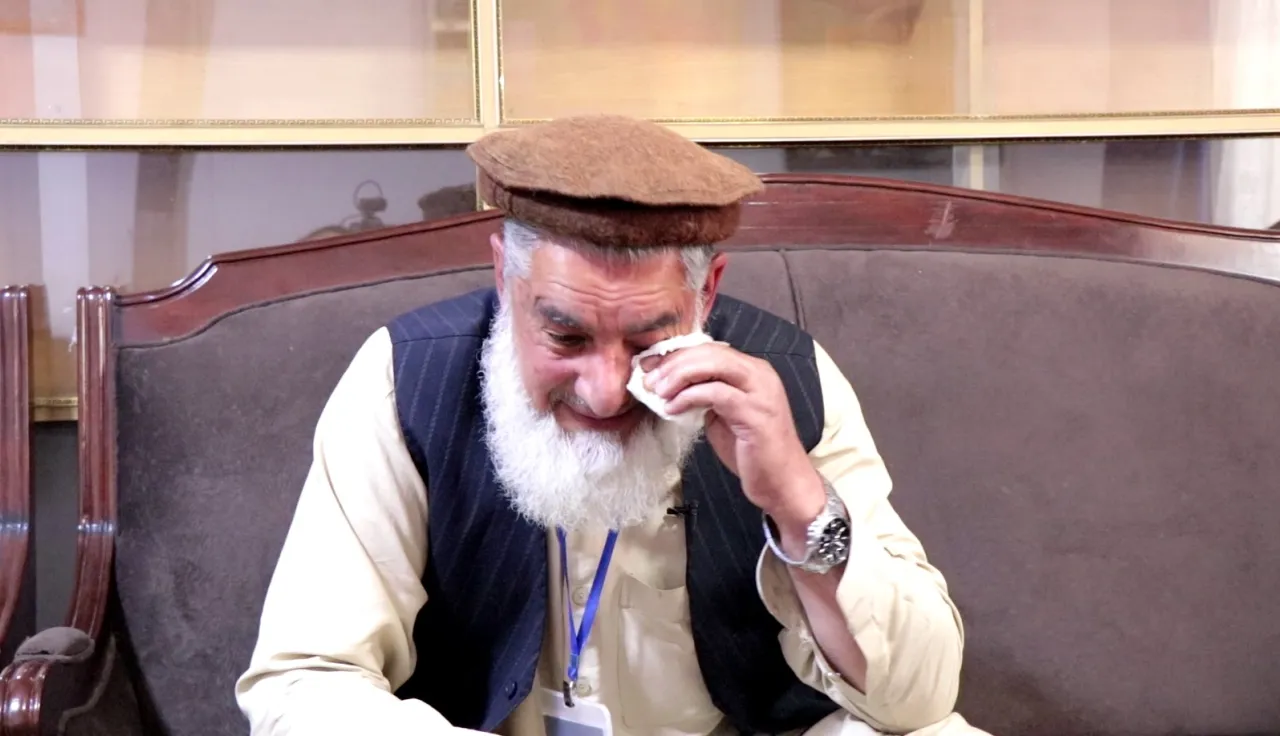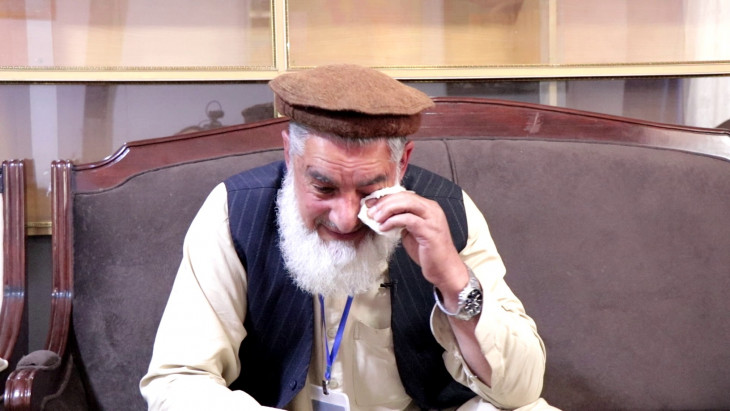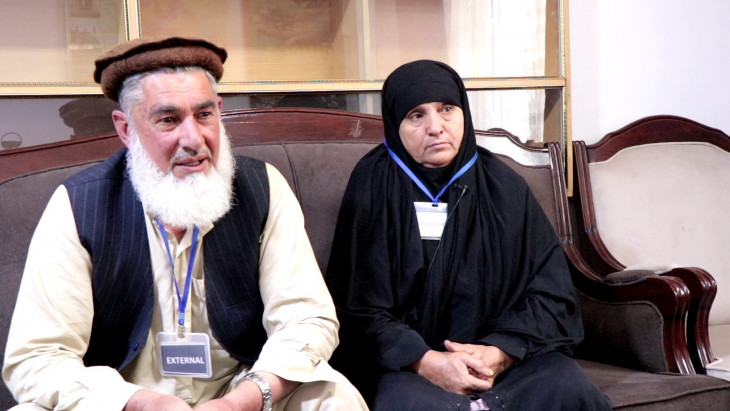Afghanistan: Parents reconnect with missing son after three years

"I suffered for three years without a piece of my heart," says Mohammad Shah as tears flow freely down his bearded face. The 65-year-old has not forgotten the last time he held his son Faisal Hanafi and kissed him goodbye. Reliving that moment a thousand times over helped Mohammad Shah and his wife go through the years of uncertainty as they waited to hear news of their son.
Hanafi had to flee the country after facing multiple threats to his life. Worried for their son's wellbeing, Mohammad Shah and his wife helped him leave the country despite the risk of losing touch with him along the way. "I paid $10,000 to help my son escape to Europe via Pakistan. When we hugged and said goodbye, we did not know if we would see him again. When we did not hear any news for three years our hopes had started fading," says Mohammad Shah.

A teary-eyed Mohammad Shah recalls the last time he hugged his son Faisal Hanafi before sending him to Europe.
"I suffered for three years without a piece of my heart" — Mohammad Shah
Their story took an unexpected turn in February 2019 when the couple met Syed Yousaf Ahmad Shah, who works with the International Committee of the Red Cross' (ICRC) Restoring Family Links service to trace missing people and reunite families who have lost contact with their loved ones due to migration, conflict or disasters.
Stepping in to help the elderly couple, the ICRC team tracked Hanafi through the Trace the Face website (TTF), an online photo gallery of people looking for their missing relatives. Run by the ICRC and National Red Cross and Red Crescent Societies, the website helps migrants and their relatives who have lost contact on the way or within Europe reconnect.
After some days, through the coordination of teams from the ICRC and the National Society, it was finally confirmed that Hanafi was in Sweden and Yousaf Ahmad Shah was asked to help verify the details.
"When Mohammad Shah saw his son's photo on the website, he let out a shout and then started crying without being able to say anything more. We worked on helping them connect through Skype and see each other on a video call," says Yousaf Ahmad Shah.
He adds that working on such cases can be hard, stressful and even heartbreaking for the team as they hear intense stories. "But we are committed to serving and helping people find their loved ones," he adds.

Reconnecting with their son after three years of uncertainty, Mohammad Shah and his wife are now able to talk to him regularly.
Launched in 1987 in Afghanistan, the Restoring Family Links network has helped many like Hanafi and his parents. As part of the programme, the ICRC also delivers Red Cross messages, which are brief personal messages, to families separated by conflict and helps maintain contact between detainees and their families through phone calls, video calls and visits. Since the creation of the TTF website in late 2013, the ICRC has helped 206 families reconnect and maintain contact out of which, 166 of them are Afghans.
Hanafi's mother couldn't hold back her emotions as she received the news of her son. "When my husband came and told me that Faisal had been found, I cried because I couldn't believe my ears. My dearest son was alive and safe! There is no greater joy for me now than to talk to Faisal through Skype or over the phone. I am so grateful that the ICRC is helping people like us across the globe," she says.



